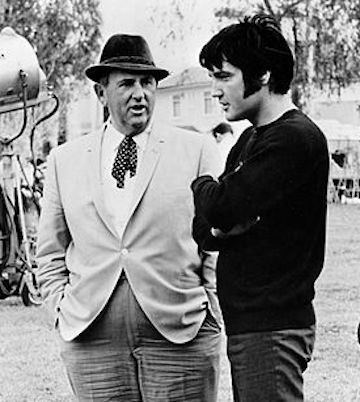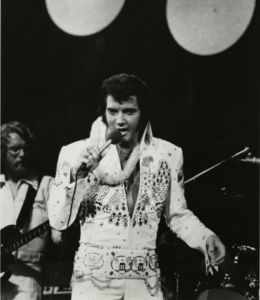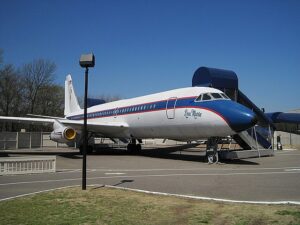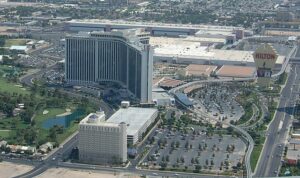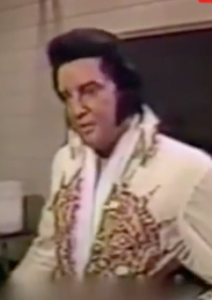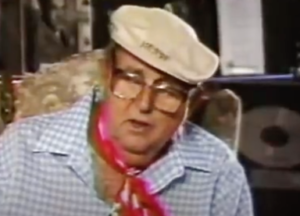The true story about the man who contributed mightily to the destruction of one of America’s greatest 20th century icons.
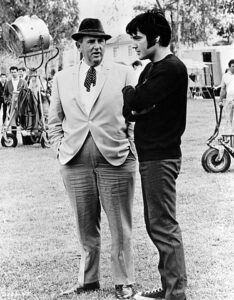
According to Colonel Tom Parker personally, he was born in early 1900, in Huntington, West Virginia and began working in touring carnivals at a very young age. He served in the military, eventually developed and promoted his own carnival acts and graduated to first promoting and then managing country musicians until obtaining the exclusive management contract of Elvis Presley in 1954. While he was always able to obscure his true beginnings, his singular accent was ascribed to his origins in rural Appalachia. In fact, although slight, his accent was Dutch because Colonel Tom Parker was not born anywhere near West Virginia, he was not even born in the United States. He was born Andreas Van Kuijk on June 26, 1909, in Breda, The Netherlands, the seventh of eleven children of Maria and Adam Van Kuijk.
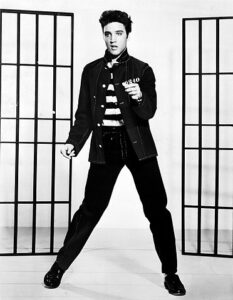
Initially conceived as a Christmas special by Tom Parker, both Elvis and the shows creative team of Steve Binder and Bones Howe agreed that they wanted a more stripped down return to Elvis’ musical roots and were able to convince Parker to generally accept moving away from Elvis singing Christmas carols, most likely because that was something Presley wanted no part of. Once they got that general agreement, Elvis made the creative decisions on his own with a great deal of input from Binder whose perspective Presley respected. The resulting special, with a tanned, refreshed Elvis in an especially remarkable leather outfit, among other wardrobes, performing an extended medley of some of his most popular or distinctive hits was the highest rated television show of the year, the program also a critical hit.
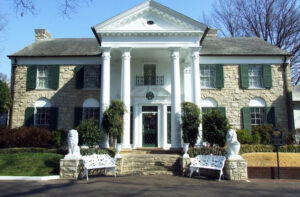
With Elvis on the road and her husband engaging in various romantic adventures as a result of his newfound notoriety, Gladys Presley, already a heavy drinker, began to consume alcohol on a daily basis and abuse sleeping pills. Quite domineering in her relationship with Vernon, it is believed as she deteriorated physically, her husband, in Elvis’ absence began to be much more physically abusive. Her son’s fame was also troubling and overwhelming, her fear that an hysterical crowd might eventually harm or even kill Elvis. Depressed because her neighbors disliked her habit of raising chickens and feeding them on the front lawn of Graceland, Gladys never really adjusted to her family’s radical transformation, once telling her friend, “I wish we had stayed poor.”
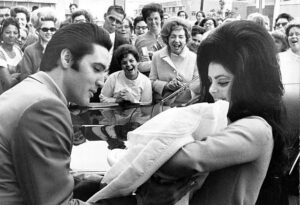
While in Germany, Presley also met Priscilla Beaulieu, a fourteen year old daughter of an Air Force officer stationed in Wiesbaden, Germany. Because of her youth, her relationship with Presley was extremely restrained until 1962, although her ability to then visit Elvis and ultimately live at Graceland while Priscilla attended a local Catholic High school, was conditional upon an agreement that the couple eventually marry.
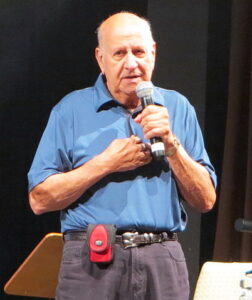
Because some of the Memphis Mafia especially Joe Esposito, were conduits to the Colonel, he was fully aware of Preley’s restlessness and anger over his stalled career. He also was mindful that at some point, Elvis’ public might completely tire of the formulaic nonsense that was now the mainstay of Elvis’ income stream. He began discussions with NBC for a television special live performance that would be billed as Presley’s comeback as an entertainer.
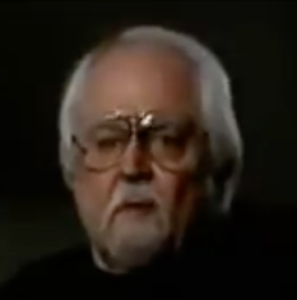
Another close associate of Presley, Lamar Fike, was in Portland, Maine, also to help get ready for the tour. He was attempting to get some sleep after taking a redeye from Los Angeles when there was a loud knock on his door, a voice telling him intently that the Colonel needed to see him right away, despite Fike’s protestations. Entering the Colonel’s hotel room, he noticed other employees avoiding his gaze as Parker hung up the phone. In an unemotional tone of voice, the Colonel explained that Fike needed to go to Memphis and be with Vernon Presley, Elvis’ father and that Elvis was dead. Like many members of the entourage and even Elvis himself, Fike’s relationship with Parker at this point was at best, ambivalent, in Fike’s case, he frequently expressed concern over Elvis Presley’s physical condition. Parker typically ignored such entreaties, maintaining whenever forcefully pressed on this concern “that the only thing that mattered was getting Elvis ready to appear on stage that night.”
Podcast: Play in new window | Download
Subscribe: RSS

